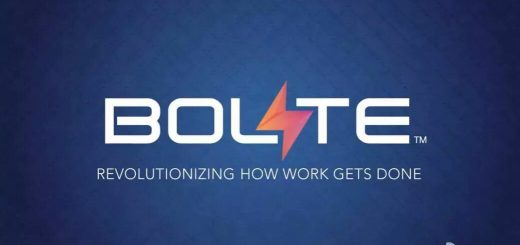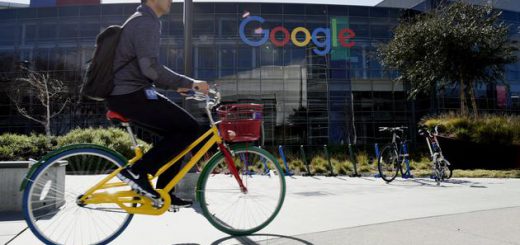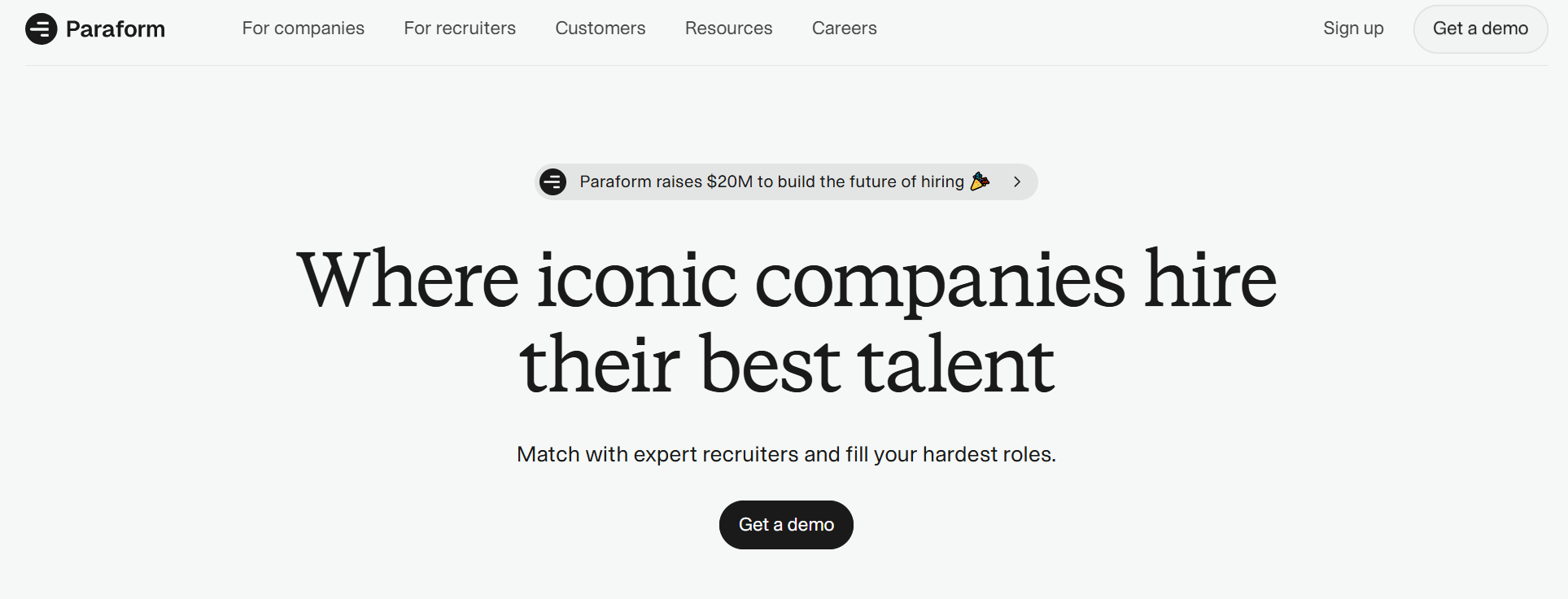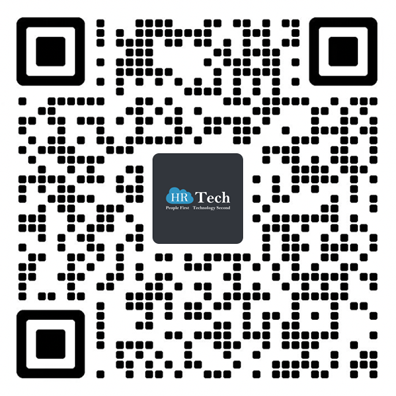融资
Glassdoor获4000万美元融资,估值约10亿美元
Glassdoor 是美国的一家做企业点评与职位搜索的职场社区,公司今天宣布刚完成一轮 4000 万美元的 H 轮融资,公司估值约 10 亿美元。这意味着前后经过 8 轮融资的 Glassdoor 如今终于成长为独角兽。Glassdoor 的此轮融资由 T. Rowe Price 领投,公司之前的投资方 Battery Ventures、Google Capital、Sutter Hill Ventures 和 Tiger Global 继续跟投。
对于此次融资,用 Glassdoor CEO Robert Hohman 的话来说是纯属 “无心插柳” 的结果。他背后的意思是 Glassdoor 本来其实是不打算融资的,因为公司银行账户里还有足够多的现金,此外,Glassdoor 现在的营收甚至比一些上市公司都要多,具体哪些公司就不点名了,不过他并未透露 Glassdoor 现在是否实现了盈利。让 Glassdoor 与众不同的地方在于,它不仅会像其它招聘网站一样发布职位信息,更主要的是它可以让一家公司的前员工和现员工匿名点评自己所在公司的工作环境、公司老板和薪酬等信息。如此一来,正在求职的人们便可以从前人的点评里获取自己希望得到的最有用的公司信息,这是那些高大上但有点虚的公司口号无法告诉你的。为鼓励大家点评分享,Glassdoor 采用 “付出即所得(“give-to-get” model)” 的机制,即用户贡献的点评信息越多,能看到的点评信息也就越多,形成一个社区氛围。为了保证点评信息的真实有效,Glassdoor 上注册邮箱尾缀必须与公司相符,另外,他们还专门建立了一个人工内容审查团队。
目前,Glassdoor 的数据库里拥有约 50 万家企业的档案资料,覆盖全球 200 个国家和地区。Glassdoor 每年都会发布全球 50 大最适合工作的公司排行榜成为了求职者的热门风向标。Glassdoor 还借此也推出了自己的职位搜索和招聘服务,有 2000 多家公司在使用 Glassdoor 的品牌推广与招聘工具,Groupon、高盛集团、Facebook、宝洁和 Twitter 等都是它的客户。
在招聘与求职行业,Glassdoor 的最大的贡献就是消除了公司信息与求职者信息之间的不对称。一是让求职者有渠道了解到过去被视为 “机密” 的公司排名、薪酬福利、内部情况等信息,二是开始让企业意识到多让外界了解自己并不是坏事,开始放平姿态去做雇主品牌建设,跟求职者交流。
目前市场上有很多职业招聘类的网站,其中比较大的包括 LinkedIn、 Recruit Holdings(Indeed 的所有者)和 Monster.com。此外,这个领域近日还发生了整合并购类的案例,就在几天前,职位搜索引擎 Simply Hired 宣布将于本月26日 停止运营,有消息称它的部分技术和资产已经被 Recruit 收购了。
Hofman 表示,公司将主要利用这轮融资去刺激用户更多地点评、加大在机器学习技术方面的投资,从而帮助自己更好地识别虚假的点评,同时更好地匹配求职者和职位。此外,公司还计划进一步扩张国际市场,目前,Glassdoor 在美国之外的 11 个国家有本地化的网站和移动 APP。
下面简单回顾一下 Glassdoor 的发展和融资历程:
2007年 公司创立:Glassdoor 是由 Robert Hohman、Rich Barton 和 Tim Besse 三个人于 2007年 联合创办的公司,他们三个人是在把全球最大的在线旅游公司 Expedia 做上市之后开始做的 Glassdoor 项目。他们创办 Glassdoor 是基于这样一个思考:现在是时候让那些正在求职的人提前了解他们未来可能会入职的公司的更多真实的一手信息了。
2008年A 轮和 B 轮融资:Glassdoor 在 2008年 3月 就获得了 A 轮 300 万美元的融资,6 月产品正式上线。同年10月,Glassdoor 又完成了由 Benchmark 领投的 650 万美元的 B 轮融资。
2011年C 轮融资:到了 2010年,Glassdoor 已经变成一个求职者找工作前必须看一看,企业主也相当重视自己在上面评价的地方了。2010 年的 6 月,Glassdoor 开始允许企业在平台上做雇主品牌建设,向对公司感兴趣的用户传递 “为什么要来这工作”,后来开始让求职者在查看职位的时候直接看到该公司的薪酬、排名、点评等信息。2011 年 2 月,Glassdoor 完成 1200 万美元的 C 轮融资。
2012年D 轮融资:到了 2012 年11月,Glassdoor 获得 2000 万美元的 D 轮融资,用户量达 1400 万,收集了 20 万家公司的 300 万条点评,遍布全球 190 多个国家。
2013年E 轮融资:2013 年 Glassdoor 开始投资职位的元搜索引擎(meta-search engine),研发企业端导向的产品。同年,Glassdoor 用户量达到 2200 万,积累了 30 万家公司 570 多万条点评。2013 年的 12 月,Glassdoor 获得老虎环球基金领投的 5000 万美元 E 轮融资。此时的 Glassdoor 已经成为一个针对用户的职位搜索引擎和社区,用户在平台上发生联系。同时他们也为企业端提供增值的数据分析、品牌建设、营销和招聘工具。
2015年G 轮融资:2015年1 月,Glassdoor 宣布获得 Google Capital 和老虎环球基金领投的 7000 万美元 G 轮融资,用户量突破 2700 万,用户做出的点评次数已超过 750 万次。
2016年H 轮融资:2016年6月,Glassdoor 完成 4000 万美元的 H 轮融资,估值约 10 亿美元,进入独角兽俱乐部。
原创文章,作者:达达,如若转载,请注明出处:http://36kr.com/p/5047763.html
融资
办公协作应用 Bolste, Inc.融资 $2,500,000 美元
办公协作应用 Bolste, Inc.(Scottsdale, AZ, 85254) 融资 $2,500,000 美元,基于云和移动设备.
Bolste 可以帮助公司内部更好地沟通和协作,提高生产力效率。电子邮件像黑洞,浪费了大量的时间,有些员工每天处理超过200封邮件。Bolste 力图成为新的商业操作系统。
融资
减压治疗平台BioBeats获228万美金融资,提供员工减压的解决方案
BioBeats通过采集各种跟健康相关的数据,用机器学习的算法将这些数据转化为内容,给用户提供压力治疗的解决方案。本轮融资由 White Cloud Capital 领投 AXA Strategic Ventures 和 IQ Capital 跟投,他们此前曾获得 Will Smith 等人的 65 万美元种子期投资。
目前 BioBeats 提供的产品是减压治疗应用,给普通用户提供减压治疗的同时也针对企业提供员工减压的解决方案。
该公司机器学习所需要的数据来源主要是通过智能手机和现在流行的智能可穿戴设备,可以针对不同的用户给出定制化的意见。
针对企业市场,BioBeats 可以直接集成在各种企业的人力资源系统中,通过对员工在工作生产线上的行为进行分析来进行减压治疗,目前很多美国和英国的公司都在用他们这套系统。
其团队表示,问卷调查也是他们了解用户的方式之一,这一点跟 Ginger.io 很像,他们的 AI 学习了这些数据后会生成一个情绪的图形反应给用户。
目前 BioBeat 可以给用户提供减压的方式主要是通过用的智能设备,让你听到、看到或者感觉到,通过这些定制的音乐、图片来让你减压。
本文参考了多个信息来源:http://techcrunch.com/2016/04/22/biobeats-raises-2-28m-for-its-platform-to-replace-human-stress-therapists/
融资
谷歌成立内部创业孵化器Area 120:为防止人才流失
摘要:The Information网站援引消息人士的说法称,谷歌已成立了名为Area 120的创业孵化器,让员工可以将他们的“20%时间项目”变为全职项目。如果希望参与这一孵化器,那么需要提交商业计划书。
北京时间4月25日上午消息,在硅谷,由谷歌前员工创立的创业公司非常常见。尽管这对创新性是件好事,但对谷歌并非如此。谷歌目前正采取措施,试图将这些人才留在公司内部。
The Information网站援引消息人士的说法称,谷歌已成立了名为Area 120的创业孵化器,让员工可以将他们的“20%时间项目”变为全职项目。如果希望参与这一孵化器,那么需要提交商业计划书。如果被接受,那么员工就可以在几个月时间里专注于自己的新概念。通过这种方式,员工既可以尝试创业,又不必担心在失败的情况下丢掉谷歌诱人的工作。
谷歌并未正式确认这一消息。目前也不清楚,Area 120将何时正式开放申请。不过,谷歌成立孵化器并不值得惊讶。尽管谷歌一直试图塑造创业公司文化,但这仍然未能阻止人才的流失。谷歌高精尖研发部门ATAP的情况就是如此,该部门的负责人近期刚刚跳槽Facebook。在另一些情况下,离职员工的创业甚至会不利于谷歌。例如,Instagram创始人凯文·希斯特罗姆(Kevin Systrom)在创业前曾在谷歌工作两年,而目前Instagram已被Facebook收购,发展很快。
The Information指出,仅仅表态愿意支持员工的创业概念还不够。在当前的硅谷,融资非常简单,而独立发展对创业者来说可能更有吸引力。不过对谷歌而言,将创新的概念留在公司内部将带来巨大的价值。
来源:新芽NewSeed
融资
聘宝发布融资信息,获洪泰基金近千万元Pre-A投资
4月16日上午消息,总部位于成都的智能招聘项目聘宝今日对外宣布,已于2015年11月完成洪泰基金投资的近1千万元Pre-A轮投资,现在正式进军北京招聘市场。关于投资额,洪泰基金方面告诉新浪科技:“具体金额需要看协议,但差不多快1000万元的Pre-A投资。”
聘宝成立于2013年下半年,同年年底完成了来自个人方面的400万元天使投资,创始团队成员来自阿里巴巴、三星和腾讯。作为又一家号称“一站式智能”进入招聘市场的创业项目,聘宝团队认为其创业壁垒,主要在于智能推荐算法,不仅能够提升求职招聘匹配时间,还能降低企业招聘的成本开销。
聘宝创始人兼CEO方园解释说:“传统智能招聘基本都是靠筛选器或搜索,但作为以结果为导向的招聘行业,HR最希望的是能在招聘者简历到达前,已有中间拟人化的筛选过程,而现在的技术已经能实现这种拟人化。”
方园举例称,一个电商HR希望找到一个前端工程师,但在求职者简历中,或许合适的人才的履历中不会出现搜索关键词“前端”或者“电商”,但如果依赖于较大的语料库和数据库,并能有不同的数据触发场景,招聘会更加快速而准确。
“比如你简历中提到了SKU、GMV,那数据库就会触发电商对应的程序,把你进一步推到电商相关的招聘场景中,进行下一步跟踪。”方园对“拟人化”解释说,并认为聘宝除了技术,还会在简历跟踪环节里有人工把关,这些人员根据聘宝数据库和语料库描绘出的知识图谱进行把关,保证最终送到HR面前的简历的质量。
但有中文语料和智能算法就能在招聘市场中获得一席之地吗?前几年乘着市场东风而起的拉钩和Boss直聘目前还杀红了眼、甚至出现不体面竞争,选择招聘领域创业是明智的吗?
方园对于这种质疑并不完全认可,他表示虽然招聘领域看似红海一片,并且地铁广告铺天盖地,“但一个以结果说话的行业,却没人在宣传中亮肌肉秀成绩,可能也说明一定的问题,而且进一步说,招聘的结果导向说明了靠烧钱建立不了壁垒。”
这位聘宝创始人的专业是机器学习和信息挖掘,他认为招聘行业目前的大机会正是来自人机结合带来的产能效率提升,以及招聘成本降低。
“传统网络招聘之所以最后也没出现巨头,就在于信息平台搭建后没有进一步挖掘,但现在针对性的猎头招聘费用又很贵,目标人才年薪20%的佣金不是每家企业都能接受,而且效率不一定高。”方园告诉新浪科技,在平民招聘和猎头招聘中,存在市场盲区。
目前,在完成市场拓展之前,总部位于成都的聘宝在TMT和医疗大健康领域进行了试水。官方给出的结果数据为:比传统招聘意向率高30%,且成本是猎头客单价的1/10,每周能为相关企业推荐7名目标对象,而这一数据在同等猎头招聘中是每周2名。
现在,聘宝团队的北京办公室位于望京的洪泰创新空间,但这个创立于成都的团队已表示今年最大市场拓展就是北京,创始人方园经历了“北京-杭州-成都”的工作和创业经历后,又再一次回到了北京。
他对于这段经历是这么解释的:“我在北京主要是方正和腾讯的工作,后来去杭州做了阿里无线产品,并在团队建设时期帮助HR招人,发现了这个市场的盲区,以及我的专业所长可以提供的方案。后来再去成都,完全是一个’love story’,成都虽然安逸,但非常适合前期打磨算法,而且性价比超高,包括在洪泰投资前的一年多里,我们就已经完成了600多次产品打磨。所以现在是时候进军北京,开始真正的跑马厮杀了。”(李根)
融资
企业现金管理奇点金融获3000万人民币A轮融资
奇点金融是一个面向创业公司的理财服务商,为创业公司打造创业余额宝服务,使创业公司融资后也能享受到专业和高效的企业余额理财服务。北京盘古奇点投资管理有限公司旗下产品。奇点金融正式宣布完成由由阿里联合创始人吴泳铭创立的元璟资本领投,艾瑞资本和华软投资跟投的3000万人民币A轮融资。
奇点金融创立于2015年2月,5月份内测上线,以千亿级的创业市场为出发点,专注于为各轮次的创业公司提供最专业、最安全的现金理财及管理增值服务。其团队此前曾获得滴滴出行天使投资人王刚领投的 120 万美元天使投资。当时王刚的预言是:“奇点金融注定将成为下一只独角兽。”
企业金融服务的市场规模比个人金融服务的市场更大,中国有 2500 万中小企业,市场对企业理财及现金管理有很大的需求,这是个十万亿级的市场;但目前银行的服务效率和推动力难以满足市场的需求,因此存在很大的机会。这是元璟投资奇点金融的逻辑。
奇点金融同时发布了定期和美金两款新产品,此前奇点已经对两款产品做了数个月内测。奇点的金融端负责人钱挺表示:“定期业务的上线有效补全奇点金融在企业现金管理中对于固定期限和中长期现金管理需求的满足。可为每个企业设计独特的现金管理方案,收益高于市场同类型产品。”
融资
拉勾网完成2.2亿元人民币C轮融资 弘道资本领投
来自亿欧网3月23日晚间消息
拉勾网今日宣布获得弘道资本领投,启明创投、荣超投资等跟投的2.2亿人民币C轮融资,据悉,此轮融资将用于产品和技术研发,连接人与企业,提供更多元的人力资源服务。
拉勾网成立于2013年7月,是一家互联网招聘公司,其于2014年4月宣布获得500万美元的A轮融资,投资方是贝塔斯曼亚洲投资基金;同年8月,拉勾网宣布完成启明创投领投,贝塔斯曼跟投的2500万美元 B 轮融资;拉勾网成立之初获得徐小平、曾李青、弘道资本等数百万元天使投资。
融资
硅谷融资估值下滑:泡沫破灭还是理性回调?
在融资遭遇困难之下,创业公司也只能无奈选择裁员。Evernote、Tango、Zenifit、Snapchat等一批知名创业公司甚至独角兽成员都在纷纷裁员。当然,这也与硅谷整体裁员大潮符合一致。
这不是倒春寒,这是寒冬持续。今年的硅谷初春,格外阴冷多雨。近期我所采访的数位创始人,都在为同一个问题焦虑:现在融资怎么这么难?
硅谷创投持续降温
过去几年,“泡沫”的阴影一直笼罩着硅谷。创业公司的估值急剧飙升,10亿美元独角兽公司数量不断增加,科技与创业人才持续涌入,硅谷已经出现人满为患的景象。这不禁让人回想起了15年前,硅谷网络泡沫破灭之前的火热场景。
但从去年下半年开始,降温的感觉越来越明显。一方面,诸多成长期创业公司甚至是独角兽公司的估值陷入停滞,甚至被迫接受流血融资(估值下滑);另一方面,早期创业公司发现他们要打动投资者的难度越来越大,投资者变得日益犹豫甚至退缩。
O2O领域创业公司DoorDash上月以6亿美元的估值完成了总额1.1亿美元新一轮融资,这一估值距离该公司此前期待的10亿美元相去甚远,与去年3月的上一轮融资估值持平。本月初,社交平台Snapchat以160亿美元的估值完成了1.75亿美元,最新估值同样与去年没有变化;而此前的投资者DST、阿里、Lightspeed都没有参与。
估值下滑的情况也比比皆是。CB Insights的统计显示,单是今年前两个月就有13家创业公司被迫接受了流血融资。可穿戴公司Jawbone估值腰斩了一半,地理社交平台Foursquare估值缩水了六成。“近期我们观察到的几笔达成的投资,创业公司估值都是打了六折甚至更低。”硅谷一家中国VC的投资人对记者表示。“现在的情况,大家都会很谨慎。”
实际上,这种趋势从去年第四季度就已经开始。道琼斯的数据显示,去年第四季度创业公司融资总额同比下滑6.6%,至1713亿美元。而实力最为雄厚的共同基金对创业公司的投资仅有10笔,较此前单季度动辄30笔的数量呈现出明显的降温趋势。
在融资遭遇困难之下,创业公司也只能无奈选择裁员。Evernote、Tango、Zenifit、Snapchat等一批知名创业公司甚至独角兽成员都在纷纷裁员。当然,这也与硅谷整体裁员大潮符合一致。雅虎、Twitter、VMware等上市公司也在大举削减规模。
儿童益智游戏开发商CodeSpark创始人格兰特-霍斯福德(Grant Gosford)对记者表示,“虽然融资从来都不是简单的事情,但从去年下半年开始,融资的难度显然在不断增加。”目前他正在频繁往返于硅谷与公司所在的洛杉矶之间,希望尽快完成A轮融资。
一家物联网创业公司创始人透露,他们此前定的估值是3000万美元,但现在投资者报出价格甚至只有1000万-1500万美元。而另一家增强现实AR创业公司的创始人则直接把Pre-A的估值定在了800万美元的低点,“虽然市场上同等公司估值都在1500万美元以上,但现在的情况开始定低点不是坏事,早点拿到资金早点启动,投资者也会更有信心。”这两家公司都在融资过程中,因此要求匿名评论。
合理调整是好事
虽然市场存在着泡沫破灭的担忧情绪,但投资者似乎认为这种降温是理性回调。雅虎联合创始人、AME Cloud创始合伙人杨致远认为,多数后期的创业公司由于没有流动性和退出渠道,又遭遇到融资困难,所以目前估值正在趋于合理。
回顾去年的美国股市,不仅科技公司上市数量明显减少,上市科技公司的估值也纷纷下滑。市调公司Dealogic的数据显示,去年总计只有28家科技公司选择在美上市,创下了7年以来的新低,而此前两年分别是62家和48家。
但更为严重的是,去年上市的科技公司中,其中一半股价都已经破发。而且,Square、Box上市发行价估值均较最后一轮融资缩水三分之一。这意味着,后期进入的投资者无疑会面临更大的风险,同时也会波动到他们对早期创业公司的融资信心。
在硅谷New Gen基金创始合伙人张璐看来,美国股市明显下调,全球经济形势不明朗,这些都在打击着投资者的信心。“创业者或许需要重新考虑自身的增长空间和未来前景,才能以合理的估值吸引到投资者。如果此前估值虚高,未来遭遇到流血融资,可能会面临丧失控制权的困境。”
杨致远认为,这种状况不仅存在于晚期创业公司,也在逐渐传递到早期融资阶段的创业公司,现在B轮和A轮融资都出现了困难。但他看来,这些公司估值趋于理性是件好事,他们在逐渐专注于真正的创收和盈利能力,而不是追求市场份额等指标。
华山资本董事合伙人杨镭也持相同的看法。“我认为这是市场对过去几年不理性的资本涌入的一个良性调整。所以现在看到不少公司出现融资困难与估值下滑是正常的。而这种投资人的谨慎以及二级市场的冷静还会持续一段。”他对新浪科技表示。
聚焦VR领域的硅谷罗森博格基金创始人迈克尔-罗森博格(Mike Rothenberg)指出,现在的市场增长放缓,同时资产的部署也在减少。实际上,只是因为之前经历过长时间的增长,现在回归平稳阶段。
在罗森博格看来,未来更多的资本会集中在那些已经被认为是“赢家”的公司,这对进行A轮和B轮公司是很大的影响,因为如果他们不认为自己是赢家,他们就不会成功在这一轮获得融资。罗森博格说道,更多的创业公司会开始建立真正成熟的业务,并且拥有收入、现金流量和利润。
专注于早期的硅谷孵化项目500 Startups创始人戴夫-马库(Dave McClure)估计,早期创业公司的估值现在已经下滑了大约20%。但他依然持有谨慎乐观的态度。“我觉得目前的变化是健康的。那些融资后期的创业公司,尤其是独角兽,可能遭受估值的较大回调。但至少早期创业者的热情还没有出现消退,申请我们孵化器项目的创业公司数量还在不断上升,每个季度就有上千家。”他相当看好VR/AR、物联网以及人工智能方面的投资机遇。
VR/AR带来春意
那么目前的融资环境下,投资者会就此退缩么?德丰杰风险投资合伙人李嵩波并不这么认为。在他看来,目前创业公司遭遇融资困难和估值下滑是此前泡沫的健康回调,但创业市场的整体状况并没有改变,只要创业项目具有技术能力、市场前景和合理估值,投资人同样不会错过这样的机遇。
“现在是逢低买进的机会”,硅谷3D LCD显示技术公司LEIA创始人皮埃尔-艾夫(Pierre Evreux)此前曾经效力于摩根士丹利对冲基金。他们的B轮融资已经接近完成,但他认为,当美国VC畏手畏脚的时候,正是中国资本挺进硅谷的好机会。
华山资本合伙人杨镭也不认为情况会进一步恶化。“对于华山资本而言,这是一个好的投资机遇。其实与其说我们是逢低买入,倒不如说给我们跟多的机会与时间来挑选那些事实上优秀的公司。我看到一方面这种市场的估值调整还在进行中,另一方面一些非理性的资本,特别是是和中国有关的非理性,不成熟的资本还没有完全离场。现在是美国的二级市场的理性在压制着这些泡沫,否则我甚至担心泡沫会在不久的将来很快地回头。”
即便在融资普遍降温的当下,VR/AR领域依然呈现出蓬勃增长的态势。市场调查公司Digi-Capital的数据显示,今年前两个月美国VR/AR领域的投资规模已经达到11亿美元,而去年全年的总额也只有6.86亿美元。即便除去其中高达7.94亿美元的Magic Leap融资,今年前两个月的投资规模也远超去年第四季度的2.5亿美元。用杨镭的话来说,“这给眼下的投资冷流带来了一丝春意。”
“不管是在国内还是硅谷一股VRAR的投资与创业的新热潮。尽管成熟的投资机构依然相对谨慎,但创业者及早期投资人热情几乎不受O2O、社交领域的降温的影响。我们也看好AI(人工智能)、ML(机器学习)、DL(深度学习)、大数据等领域。”杨镭表示。华山资本在VR/AR 领域已经在硅谷投资了Unity、 Twitch、Movidius等几家具有潜力的公司。
融资
看看这 9 家公司创业血泪史,他们都败在哪里?
在你创办一家公司后,公司成功融资 4000 万美元,你也有一支强大的团队、清晰的使命目标以及一个被市场验证了的商业模式。但发展三年后,公司还是以失败告终,这是媒体纷纷报道你尴尬的失败结局。上面说的这些正是家政 O2O 鼻祖 Homejoy 的故事,公司已经于去年7月31日 正式关闭。
Homejy 当然不是唯一一个之前看似有美好前程、但最终失败而变得一无所有的的创业公司。CB Insights 近日汇总了 156 家失败的创业公司的创始人分享的公司失败的原因,有的失败是因为用人不当,有的是因为公司扩张太快,有的则是因为没有做好销售工作等等。创业公司失败的原因有千万种,在这里,我们选取了 9 家有代表性的公司,看看这些公司究竟是因为什么原因失败的,希望对所有打算创业和正在创业的朋友所有启发。
案例一
共享乘车服务商:Sidecar
融资金额:4500 万美元
公司发展时间:3年 半
失败原因:2015年年 末,共享乘车初创企业 Sidecar 倒下了,软件也已从 2015年12月31日 起停止了服务。通用汽车已经宣布收购 Sidecar 的技术和资产,但交易金额并未披露,Sidecar 团队中的 20 人也将加盟通用。对于公司被迫卖身的原因,Sidecar 的 CEO Sunil Paul 是这样说的:“我们为何会选择出售自己?简单来说,我们是被逼着关闭服务并出售的。我们无法与 Uber 竞争。Uber 融的钱比其它任何公司都要多,而且它以反竞争著称。Sidecar 的宝贵资产在于我们在创新方面是要优于 Uber 的,尽管如此,我们还是市场竞争中败出了。Sidecar 之所以失败,很大程度上是因为 Uber 在不惜一切代价去赢,它手里也有足够的资金来这么做。”
案例二
个性化新闻阅读应用:Prismatic
融资金额:1500 万美元
发展时间:3年
失败原因:对于为何要关闭自己的服务,Prismatic 团队在自己的官网博客上这样写道:“4年 前,我们立志开发一款能彻底改变人们新闻阅读方式的个性化的新闻阅读应用,对于很多人来说,我们确实做到了这一点。但在这个过程中我们发现,做内容分发是非常难的一项业务。由于我们的业务增长状况不佳,导致我们无法继续支撑 Prismatic 新闻产品的开发。”
案例三
图片聚合工具:Pixable
融资金额:600 万美元
发展时间:3年 半
失败原因:“尽管我们最后没能成为下一个 BuzzFeed(我们也没想过要成为下一个 BuzzFeed,我们就是要做自己),但我们达成了我们最开始设定的目标。不幸的是,我们的现状(940 万活跃用户和每月5800 万的视频浏览量)让我们很难继续再获得融资帮助我们继续发展,所以不得不接受他人的收购邀请。” Pixable 负责内容的副总裁 Chris Anderson 这样说道。Pixable 被新加坡电信以 2650 万美元的价格收购。
案例四
创意产品社区与电子商务网站 :Quirky
融资金额:1.75 亿美元
发展时间:6年
失败原因:Quirky 破产的直接导火索在于 “创始人转移资产,而新一轮融资又遭遇失败”,而根本原因是 “Quirky 的模式在美国存在问题”。(1)好的创意没人买单。很多创意产品花了很多资金研发生产出来后,却没有消费者买单。这种例子数不胜数,再比如,Quirky 耗资 38.8 万美元开发的无线音箱 Beat Booster,卖出了不到 30 套。(2)销售渠道有问题。Quirky 一直都过于依赖大型的零售商销售渠道,比如 Bestbuy 和 Homedepot 等,他们拿走了过多的利润,导致 Quirky 分到的钱相当的少,从而现金流断裂。(3)产品多而不精 Quirky 盲目的。进入太多垂直领域。例如,Wink 是 Quirky 内部的全资智能家居项目,包含云服务存储安全架构,硬件产品设计,APP 开发和后台,其实是做了小米生态链全部的工作。Quirky 的摊子铺的太大,导致成本急剧上升,产品质量失控。
案例五
家政 O2O 鼻祖:Homejoy
融资金额:4000 万美元
发展时间:3年
失败原因:据 Homejoy 的 CEO Adora Cheung 称,公司面临的主要困境是 “将员工归类为合同工而不是雇员” 的法律纠纷,尽管目前还没有正式立案,但这使得 Homejoy 在寻求下一轮融资中处于弱势地位。这样看来,法律纠纷导致的融资困难看上去更像是 Adora Cheung 给出的一个体面说辞。那么导致 Homejoy 无法继续走下去的根本原因是什么呢?以下是我们的两点猜测:(1)平台对清洁工吸引力有限,导致供给端上遇到了问题;(2)盲目 “铺” 规模,资金跟不上扩张的速度。
案例六
在线助理服务商:Zirtual
融资金额:550 万美元
发展时间:4年 半
失败原因:“究竟哪里出问题了?答案很简单:烧钱太快。对于创业公司烧钱太快的问题,在硅谷讨论的不多,因为在经济和融资环境好的时间,融资是非常简单的事。这依然是一个麻烦的事。比如如果你每月花 50 万,同时赚 35 万,那么你的净现金消耗率就是 15 万(50-35)。” Zirtual 的创始人兼 CEO Maren Kate 这样说道。推荐阅读这篇文章:《创业公司的 “烧钱率” 应该是多少?》
案例七
新闻阅读应用:Circa
融资金额:500 万美元
发展时间:4年
失败原因:“我们本来计划通过一种新的方式实现盈利,我们也已经在这方面花了很多时间了。然而不幸的是,因为融资不顺,导致我们没能等到那一天的到来。” Circa 的联合创始人兼 CEO Matt Galligan 这样说道。推荐阅读:《Circa 之殇,不是严肃新闻尽头,而是 “互联网新闻” 的文艺复兴》
案例八
音乐分享社交网络:Turntable.fm
融资金额:700 万美元
发展时间:4年
失败原因:对于为何失败,Turntable 的创始人兼 CEO Billy Chasen 这样说道:“Turntable 我终于还是没有吸取那么多音乐创业公司的失败教训。在这个行当创业的代价太高昂了。我们的钱有 1/4 花在了律师、版税以及音乐支持的相关服务上。这样限制太多了。我们不得不停止发展,因为我们无法国际化。这是很长的一条路。需要好几年的时间跟唱片公司签订合同,还要好几个月的时间做好技术准备,在这些事情上花的时间本来是可以用在产品上的”。
案例九
问答网站:Formspring
融资金额:1400 万美元
发展时间:3年 半
失败原因:“创业者们:要用心开发自己的产品,而不是老是盯着其他人的产品。最成功的产品都是那些紧能紧围绕自己的产品和用户的目标愿景坚定执行的。要排除杂念,一心做好产品,不要轻易受就去追逐其他人的想法。虽然宣传的网络效应可以为你招来客户,但是同样也有隐患——说出去的话最终是要兑现的。开始高调宣传,你就得加足马力开工了,赶紧弥补宣传塑造的品牌形象和现有的产品所有的形象之间的差距。卫星放的再高,产品做的不够好也得死翘翘,因为背后的压力会让你的公司没法保持专一。Formspring 都是死于自己制造的喧嚣中 。” Formspring 的创始人这样说。
[ 本文转载自36氪,责编:李晓丽。 文章仅代表作者观点,不代表HRTechChina 观点。]
融资
一位优秀的 CEO 做好 3 件事就够了
编者按:本文作者 Mitchell Harper 是一位典型的连续创业者,他在过去 15年 间曾创办过 5 家公司,目前是电商软件提供商 Bigcommerce 的联合创始人兼 CEO。他在本文中分享了一位优秀的 CEO 最应该关注的 3 件事,希望对大家有所启发。
硅谷顶尖的风险投资家和著名的博客作者 Fred Wilson 在《CEO 该做什么》这篇文章中曾这样说道,一位 CEO 其实只需要做好三件事就够了:
制定公司的愿景和战略,同时和所有的利益相关者进行充分地沟通和交流。
要为公司招聘和留住最优秀的人才。
确保公司银行账户里有充足的发展资金。
咋一看,你可能会想:上面这三件事和一家正处于快速发展中的创业公司的 CEO 的真正任务角色相比有点太过简单了。然而当你真的认真回想之后你就会发现,作为 CEO,你的大部分时间其实都是花在这三件事上,最起码是与这三项工作相关的事情上的。
根据我自己过去超过 15年 的亲身创业和经营公司经验,我想在这里和大家分享一些技巧,帮助大家真正做好 Fred Wilson 所说的 CEO 应该做好的三件事。有一点要记住,和其它任何事情一样,你实践越多,你就能掌握的更好,尤其对那些第一次做 CEO 的人更是如此。
一、制定公司的愿景与战略
不要想当然地认为公司里的每个人都知道你脑子里在想什么,他们并不知道。所以你必须要持续不断地和公司的所有员工(不限于公司管理层)沟通和强调你所制定的公司愿景和战略,直到他们能烂记于心为止,不要担心他们会厌烦。
在沟通和解释公司的愿景和战略的时候,不要仅仅谈论数字和产品。告诉大家公司的愿景和战略为什么对你、对他们、对用户和投资者来说是至关重要的,同时要让他们知道他们在这里面所扮演的角色和发挥的作用。
作为 CEO,你肯定比公司里的任何人都要了解所在的市场、竞争对手等情况,你需要记住这一点,同时你也要意识到,你知道自己是可以与公司共患难、共生死的,但并不是所有员工都会像你这样。
你最好能定时召开公司全体员工大会,这样你就可以一直利用这个大会机会和大家讨论公司的愿景、战略和进展。如果你的公司正在快速发展、员工规模持续增加,这时你更应该这样做。因为你需要让公司的所有人(不管是老员工还是新加入的员工)能够在同一个愿景和战略下齐心协同作战,没有什么方法比公司 CEO 与他们直接沟通更能加强团队的凝聚力了。
尽量避免过于频繁地更改公司的愿景和战略。市场会发生一定的变化,这是不可避免的,因此你也需要针对市场的变化做出适当的调整,但在一年之内最好不要进行超过一次的重大战略调整。你的公司规模越大,调整公司发展战略方向的难度也就越大,重大战略调整意味着需要很多额外的支出,同时也会对公司员工造成困惑。
二、招聘最优秀的人才
对于那些你所认为的关键职位,作为公司 CEO 的你最好能积极参与到整个招聘流程中去。从最开始的联系应聘者,到和应聘者见面,再到最后的面试并向应聘者兜售公司愿景,你最好都能亲自参与,不要想着什么事情都让团队的其他人代劳。优秀的应聘者都是抢手货,作为公司 CEO 的你和他们面谈能体现你对他们的重视,从而提高他们加入公司的可能性。
如果可能的话,最好能提前两个季度制定招聘计划。招聘优秀的人才是非常花时间的,不管你的人脉资源多么丰富都是如此。
对于那些最优秀的人才而言,他们不会仅仅因为你的公司有一个很棒的厨房或厨师而选择加入你们的。他们希望能在行业顶尖的公司里去工作,公司必须有宏大的愿景和巨大的发展上升空间,只有这样他们才能在公司充分施展拳脚、发挥价值。所以建议你在这个方面下足功夫去说服应聘者。
正如 Beb Horowitz 在他的畅销书《The Hard Things About Hard Things》(中文:创业维艰)中所说的那样,要努力招那些能够充分满足公司未来 18 个月发展需求的员工。18 个月后,你就会发展成一家全然不同的公司,因此可以暂时不考虑 18 个月以后的招聘需求。
招聘时,要将注意力放在应聘者本人身上,而不是他的简历上。是什么让他们不同凡响?他们对什么充满激情?对于他们过去取得的不错成绩,他们是否能保持足够的谦逊?他们最看重什么东西?他们如何应对艰难的场景?技术不懂可以学,但品性是很难改变的。
三、确保公司有足够的资金
如果要融资,确保融得的资金能满足公司未来 18 个月的需求,而且是发展不顺情况下的需求。换句话说,如果公司未来 18 个月发展的非常糟糕,你也需要有足够的资金也度过这 18 个月。
在快速发展和资金消耗太多之间是有一条界线的。你可以快速发展,但同时要留意资金不能过快消耗。与其资金消耗太快、在没融到下一轮融资之前不得不砍掉一半员工,还不如发展得慢一点、资金消耗慢一点。
大部分高速发展的公司都会花很多钱在市场营销上面,而不考虑一个合适的投资回报率。与其这样,还不如先花少量的钱在多个营销渠道上进行测试,然而找到最佳投资回报率的营销渠道,然而在这个营销渠道上猛推。
如果你的目标是创办一家未来会上市或是可能被收购的公司,建议你将公司的薪酬的重点放在股权上、而不是现金工资上,尤其对于公司管理层更是如此,只有这样,大家才能齐心协力为公司创造更多未来的价值,即便是为他们自己所持股权他们也会拼命干的。
你越早搞清楚哪里的资金利用率高、哪里的利用率低,你就能越快想办法提高资金利用效率,更明智地花好每一分钱。
本文编译自:medium.com,如若转载,请注明出处:http://36kr.com/p/5043832.html
HRTechChina提供、关注最尖端的人力资源科技资讯。您可以搜索“HRTechChina”公众号或扫描以下二维码关注我们!
扫一扫 加微信
hrtechchina
 融资
融资
 融资
融资
 融资
融资
 融资
融资
 融资
融资
 融资
融资
 融资
融资
 融资
融资





 扫一扫 加微信
hrtechchina
扫一扫 加微信
hrtechchina




